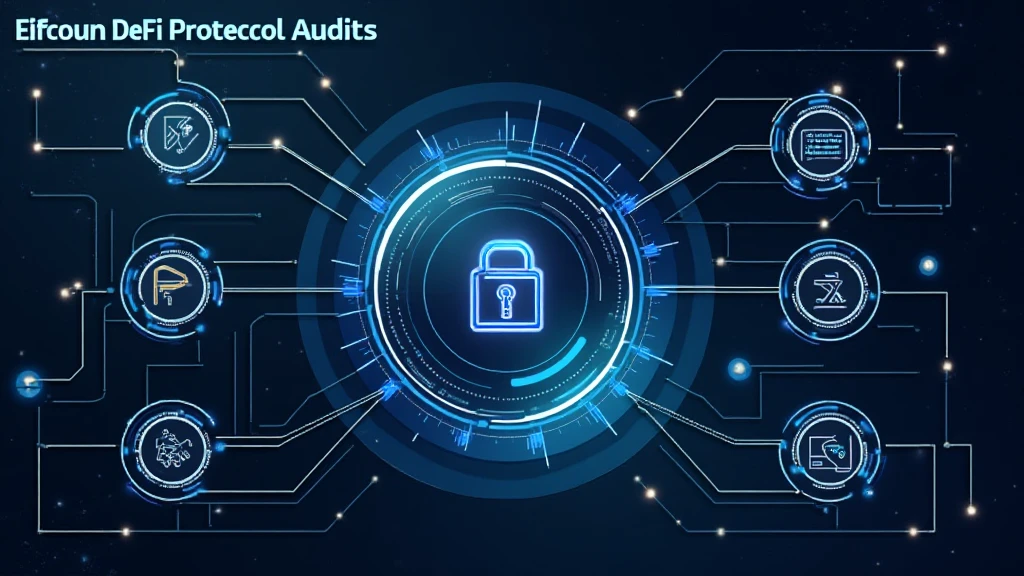Introduction: The Rising Tide of DeFi Hacks
With a staggering $4.1 billion lost to DeFi hacks in 2024 alone, securing digital assets has become paramount for investors. DeFi, or decentralized finance, offers innovative financial services but also presents unique vulnerabilities. This is where Bitcoin DeFi protocol audits come into play. In this comprehensive guide, we will unravel the intricacies of these audits, exploring their importance and providing insights into best practices. By the end, you will understand how to protect your investments effectively.
Understanding Bitcoin DeFi Protocol Audits
Let’s break it down. A Bitcoin DeFi protocol audit is akin to a thorough safety inspection of a bank vault for your digital assets. Just like a bank ensures the safety of its vault, a DeFi protocol audit ensures that the smart contracts and underlying technologies are secure and robust. As decentralization grows, the need for rigorous audits becomes increasingly critical.
The Audit Process: Step by Step
The audit process typically involves several key phases:

- Code Review: Security experts meticulously analyze the codebase of the DeFi protocol.
- Automated Testing: Tools designed to identify vulnerabilities are employed.
- Manual Testing: Security analysts simulate attacks to uncover weaknesses.
- Reporting: A detailed report highlighting vulnerabilities and recommendations is generated.
- Re-audit: After fixing issues, a follow-up audit ensures adequate security measures are in place.
Common Vulnerabilities in DeFi Protocols
When discussing Bitcoin DeFi protocol audits, it’s crucial to understand the common vulnerabilities that can affect these protocols:
- Reentrancy Attacks: This occurs when a smart contract calls another contract before the first one finishes executing, allowing an attacker to exploit the interruption.
- Oracle Manipulation: DeFi applications rely on data from oracles. If an oracle is compromised, it can lead to incorrect pricing and exploitation.
- Integer Overflow and Underflow: These issues can cause calculations to exceed the maximum limit or drop below zero, resulting in unexpected results.
Each of these vulnerabilities, if left unchecked, can lead to significant financial losses for users and investors in the DeFi space.
Case Studies: Learning from Past Incidents
Case Study 1: The DAO Hack
In 2016, The DAO, a decentralized autonomous organization, suffered a loss of $60 million due to a reentrancy attack. This incident highlighted the necessity for thorough auditing and robust security measures, leading to increased focus on auditing protocols.
Case Study 2: Balancer Attack
In 2020, Balancer faced an exploit that resulted in a loss of $500,000. The vulnerability arose from manipulation of the protocol’s pricing oracles, reinforcing how a single point of failure can cause substantial losses.
The Role of Auditors in the DeFi Landscape
Auditors play a pivotal role in the DeFi ecosystem. They not only assess the security of protocols but also provide insights that foster trust between users and developers. By ensuring transparency and accountability, auditors bolster the legitimacy of the DeFi space.
When selecting an auditor, consider the following factors:
- Experience: Look for firms or individuals with a proven track record in the crypto or DeFi industry.
- Reputation: Research previous audits they have conducted and any notable projects they have worked on.
- Methodology: Understand their auditing process and the tools they use.
Market Insights: Growth of DeFi in Vietnam
As DeFi matures, Vietnam has emerged as a significant player in the market. Recent reports indicate that the crypto user base in Vietnam has grown by over 35% in the past year, highlighting a burgeoning interest in decentralized finance. This growth reinforces the necessity for robust auditing practices to ensure user protection.
The Vietnamese community is increasingly exploring innovative solutions, making them a crucial demographic in the global DeFi narrative.
Best Practices for Implementing DeFi Audits
To effectively implement Bitcoin DeFi protocol audits, adhere to the following best practices:
- Regular Audits: Establish a routine for auditing your protocols, especially after significant updates or changes.
- Engage Multiple Auditors: Collaborating with various auditing firms can provide diverse perspectives and uncover different vulnerabilities.
- Transparency: Share audit reports with your community to foster trust and demonstrate your commitment to security.
Conclusion: Securing Your Crypto Future
In a rapidly evolving DeFi landscape, the importance of Bitcoin DeFi protocol audits cannot be underestimated. They are essential to safeguarding investments and promoting user trust. With the Vietnamese market on the rise, implementing sound security practices will be critical for the sustainability and growth of DeFi in the region and beyond. Remember, when it comes to securing your digital assets, audits are not optional; they’re essential.
For more insights into Bitcoin DeFi protocol audits and the latest from the crypto world, explore additional resources at hibt.com. Stay informed and secure!
Author: Dr. Alex Turner, a recognized expert with over 30 published papers in the field of blockchain security and has led audits for numerous high-profile projects.








